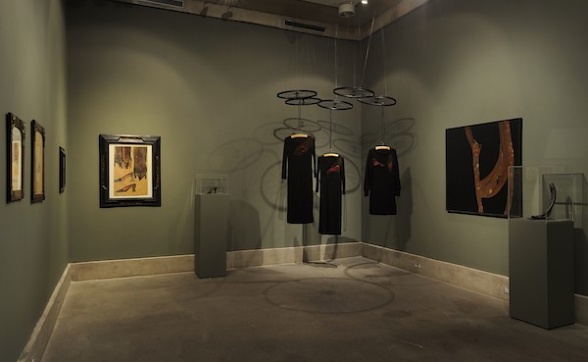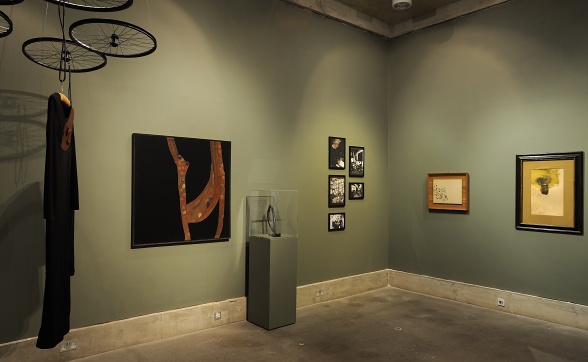Carol Rama

Carol Rama, The Cabinet of Carol Rama, 2010. Photograph by Thierry Bal

Carol Rama, The Cabinet of Carol Rama, 2010. Photograph by Thierry Bal
Carol Rama, The Cabinet of Carol Rama, 2010. Photograph by Thierry Bal
Carol Rama (b.1918, Italy) is a self-taught artist who has been making art for nearly seventy years. Producing work consistently characterised as unconventional and darkly erotic, Rama’s style has moved from figurative to abstract and back again through the decades, accompanied by an exploration of diverse materials. Throughout, her work has had a constant subject: an engagement with the self and the effect of trauma in modern life.
Rama began making art to express her fears and anguish; emotions of passion, anger, violence, joy and melancholy are all strongly conveyed in the work. Yet the artist has also indicated that she has used art to heal herself from despair and loneliness, drawing strongly on personal experiences of devastating loss from her mother’s mental illness to the trauma of her father’s suicide. This makes for uneasy reading, her work avoiding narrative in favour of symbolism, provocation and enchantment. Its power lies in dichotomy: there is something fierce and tender about her female figures; they are seductive but repulsive, tragic yet playful.
Featuring twelve works (ten of which have never been seen in the UK before), The Cabinet of Carol Rama included dresses made and worn by the artist, along with watercolours, collages, sculpture and photographs. The selection, spanning a sixty-year period, effectively created a very intimate space; a place referencing not only clothing, the female body and the hint of sexual encounters, but, more significantly, Rama’s biography and the private realm of her own home and studio.
Watercolours from the late 1930s featuring impassioned sexualised young women conversed with images of more opaque indicators of desire such as stylish shoes with phallic details, fox stoles and a crowd of luscious shaving brushes. Collectively the motifs presented themes of sexual identity with a specific investigation of female sensuality. Later works, collages on canvas from the 1960s and 1970s, explored the soft, skin-like surface of rubber inner tubes. These anticipated her more direct focus on the body in the following decade – Rama’s series of black wedding dresses featuring hand-stitched details echoing the forms of male and female genitalia.
Carol Rama at Liverpool Biennial 2010
The Cabinet of Carol Rama, 2010
Selected works
Exhibited at the Bluecoat
Supported by
Alexandra Wetzel
Franco Masoero
Liverpool Biennial
55 New Bird Street
Liverpool L1 0BW
- T +44 (0)151 709 7444
- info@biennial.com
Liverpool Biennial is funded by
Founding Supporter
James Moores